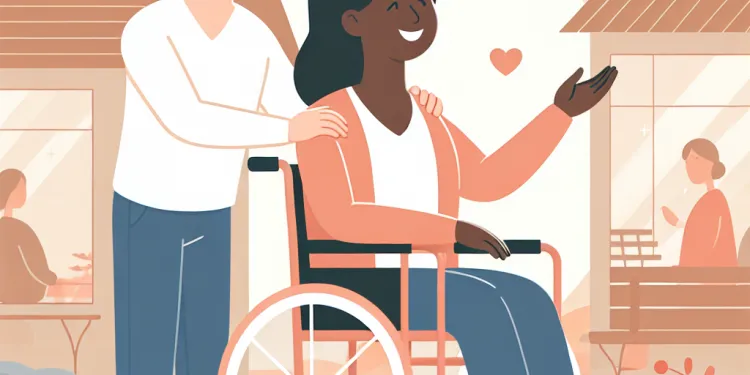
Find Help
More Items From Ergsy search
-
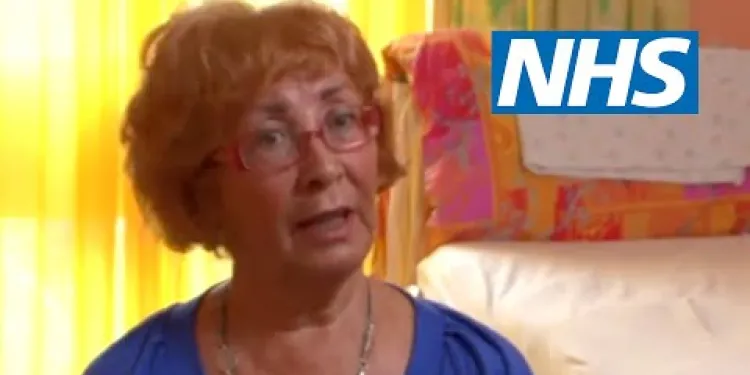
Profound intellectual and multiple disabilities | NHS
Relevance: 100%
-
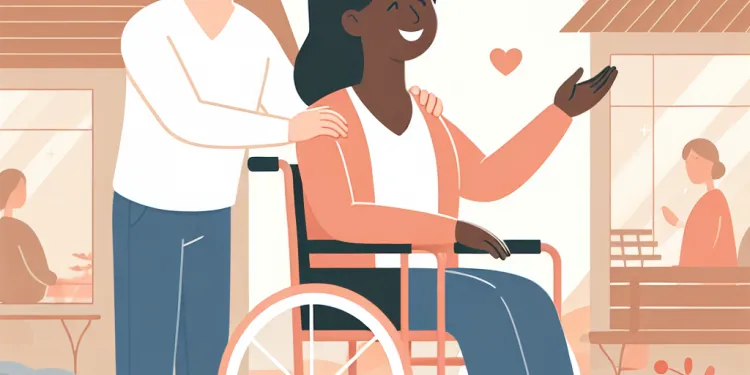
Helping someone with multiple diabilities
Relevance: 85%
-
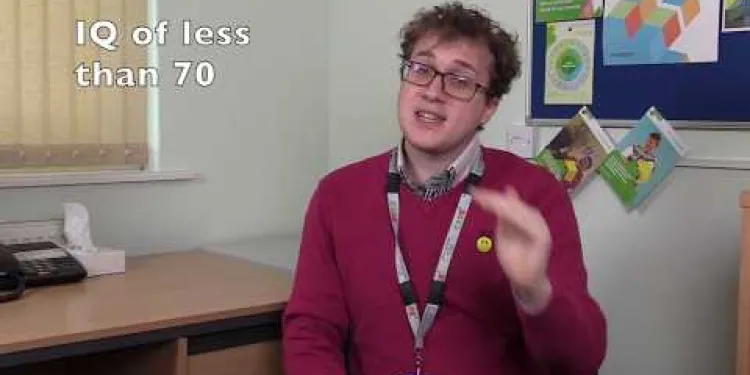
What is a learning disability?
Relevance: 68%
-
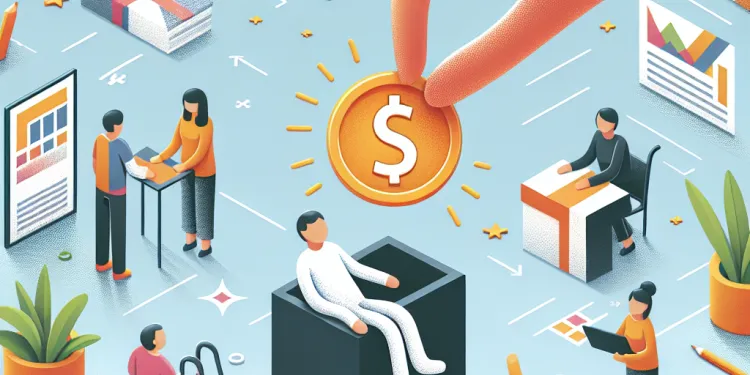
Are there grants specifically for individuals with disabilities?
Relevance: 65%
-
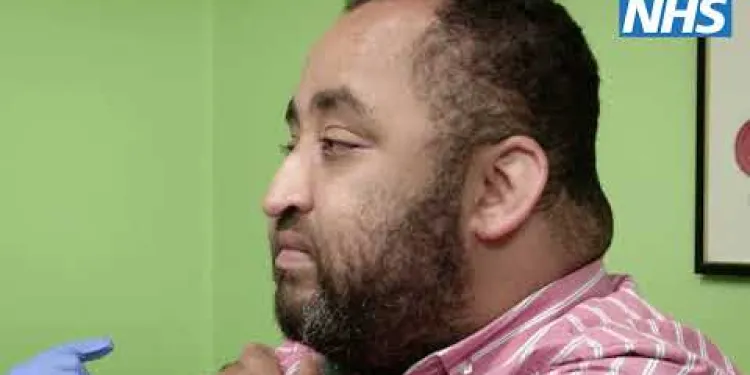
Flu vaccinations for people with a learning disability
Relevance: 60%
-
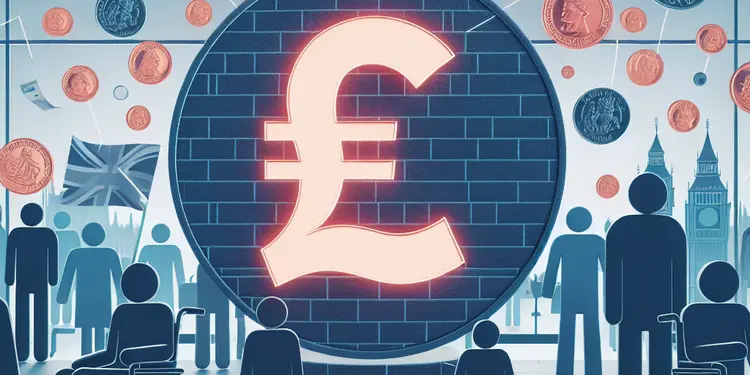
Debate Intensifies Over Welfare Reforms Impacting Disabled Citizens
Relevance: 59%
-
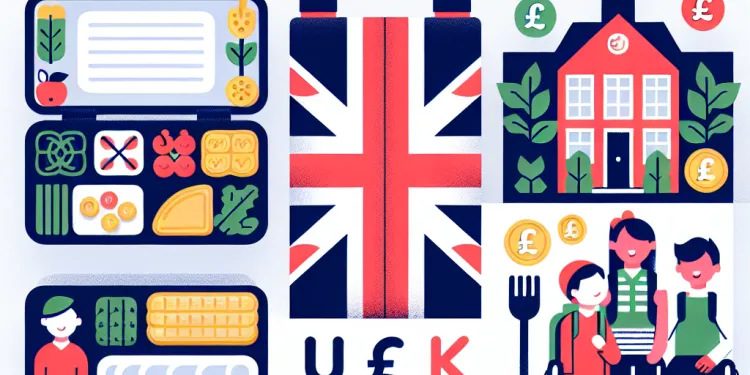
Can children with disabilities access school meals?
Relevance: 59%
-

The NHS Long Term Plan for learning disability and autism
Relevance: 56%
-

Are there any discounts for multiple property purchases?
Relevance: 55%
-

Accessing cervical screening with the right support for people with a learning disability
Relevance: 53%
-

Why do some vaccines require multiple doses?
Relevance: 52%
-

Are there benefits to having multiple bank accounts at different banks?
Relevance: 50%
-
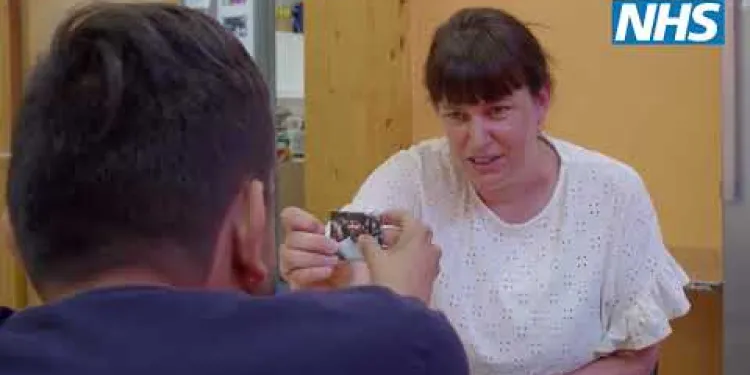
Use of reasonable adjustments to reduce health inequalities for people with a learning disability
Relevance: 50%
-

Are there benefits to having multiple bank accounts at different banks?
Relevance: 50%
-
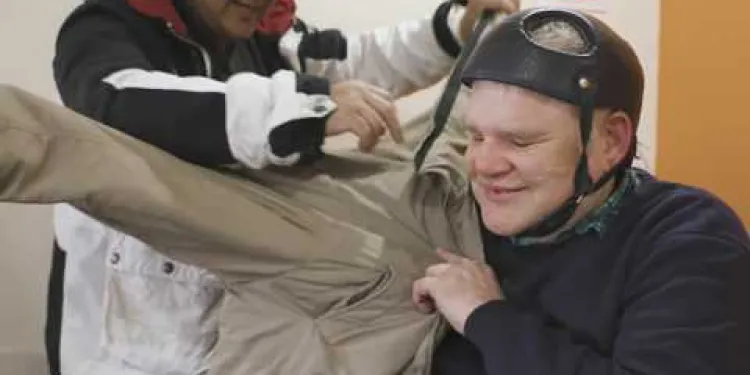
Transforming Care for people with Learning Disabilities and/ or Autism: Peter's Story
Relevance: 49%
-
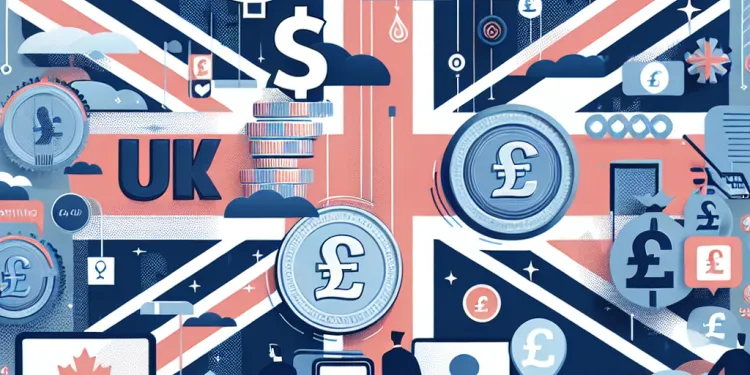
Can I have multiple ISAs?
Relevance: 47%
-

Highest Income Multiple Mortgage Lenders Revealed - Good and Bad Points
Relevance: 47%
-
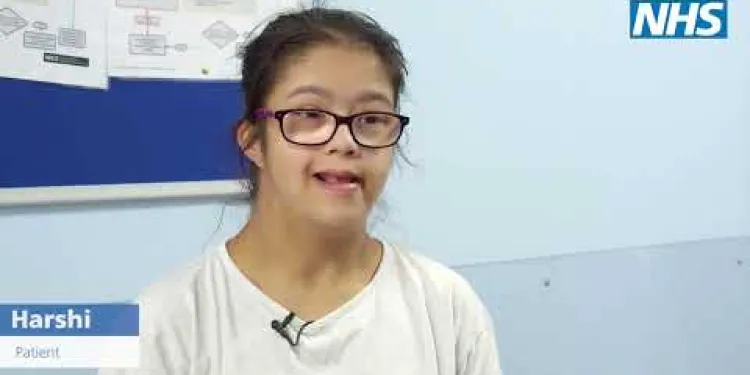
Harshi’s learning disability annual health check and health action plan
Relevance: 43%
-
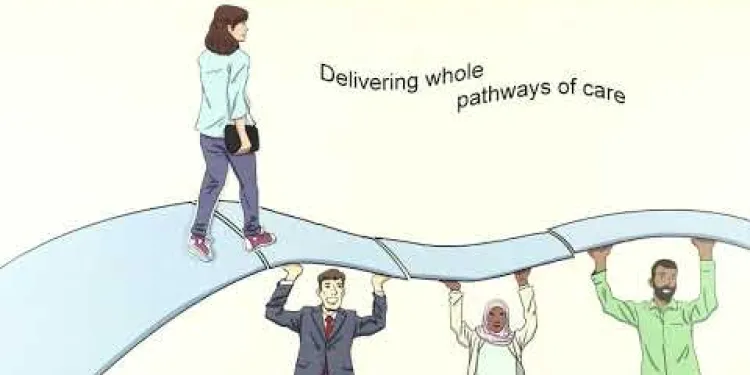
NHS-led Provider Collaboratives: improving mental health, learning disability and autism services
Relevance: 42%
-
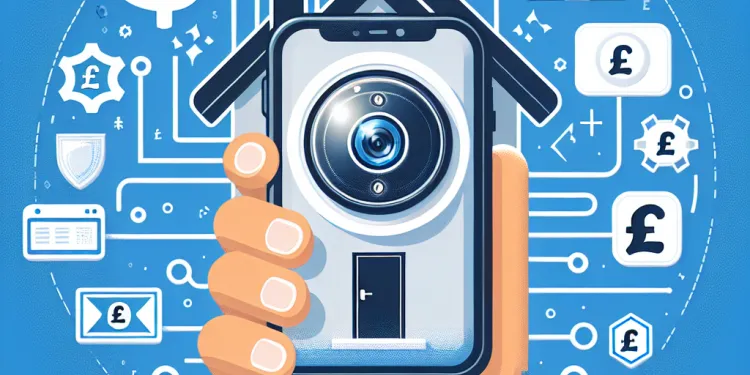
Can multiple users access the same Ring Doorbell Camera?
Relevance: 38%
-
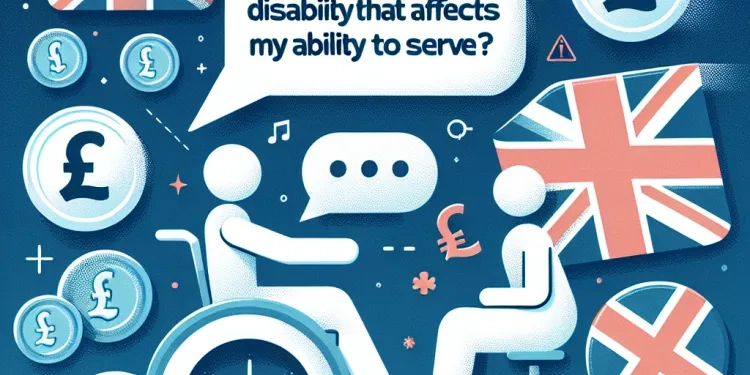
What if I have a disability that affects my ability to serve?
Relevance: 31%
-

How can I disable my neighbour's security camera?
Relevance: 31%
-
Can mitochondrial disease affect multiple organ systems?
Relevance: 30%
-
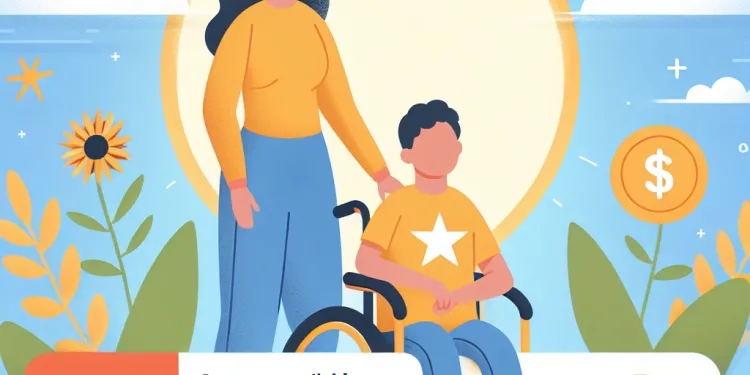
What support is available for families of individuals with PIMD?
Relevance: 29%
-

What if I need bereavement leave for multiple relatives at different times?
Relevance: 29%
-

What are some common types of SEND?
Relevance: 25%
-

Who is eligible for the Sure Start Grant?
Relevance: 25%
-
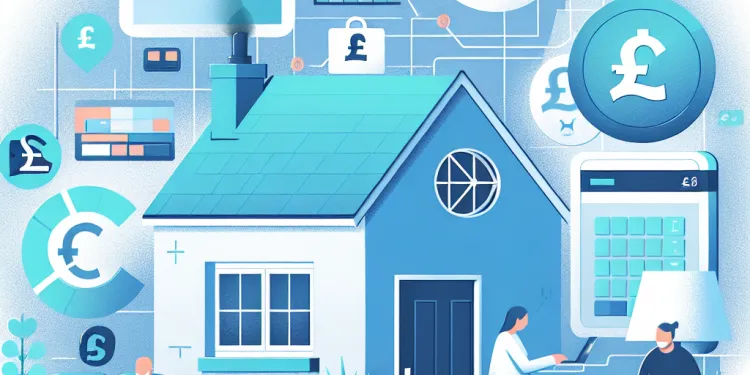
Who is eligible for Household & Cost-of-Living Support grants?
Relevance: 24%
-
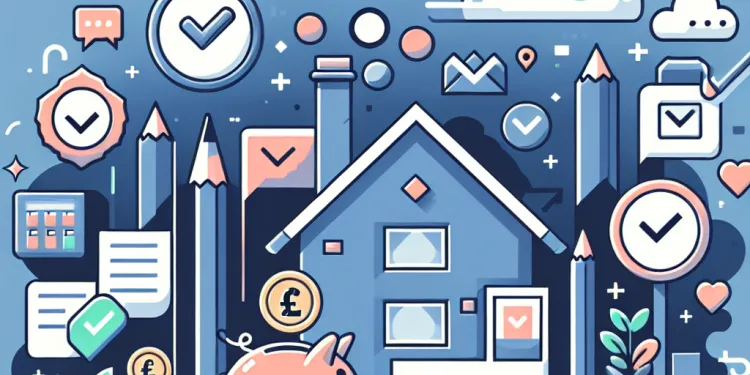
Who is eligible for the Sure Start Grant?
Relevance: 22%
-
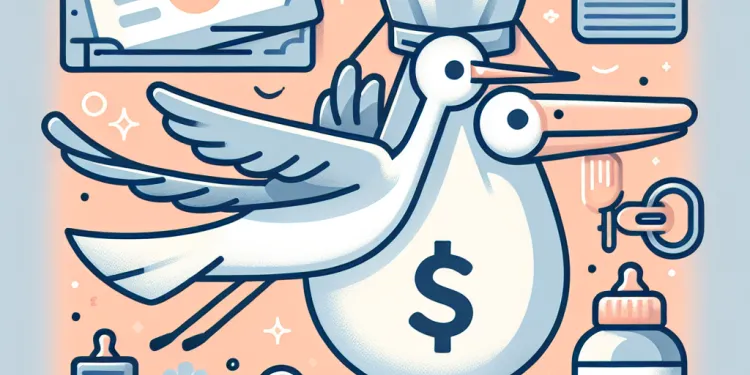
What is the Sure Start Maternity Grant?
Relevance: 22%
-
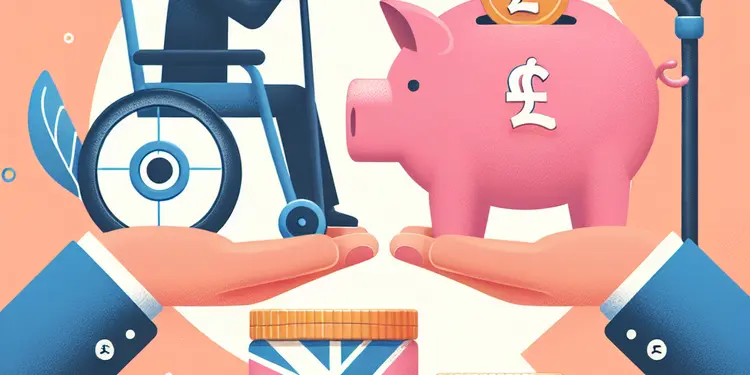
Are there any financial assistance programs for mobility equipment?
Relevance: 21%
-
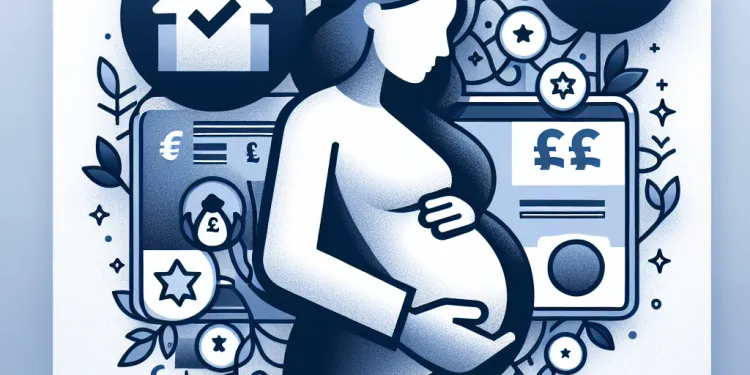
Who is eligible for the Sure Start Maternity Grant?
Relevance: 21%
-
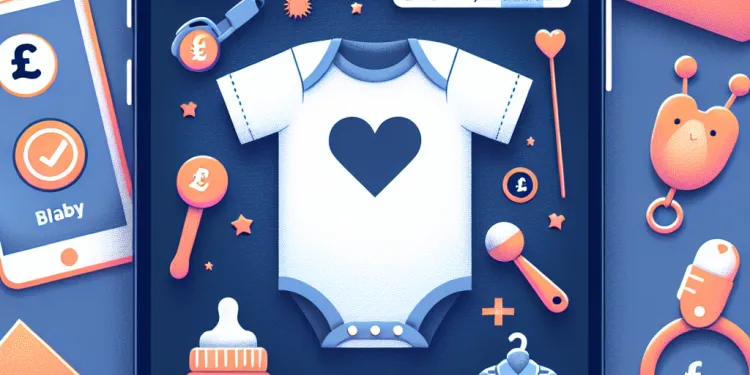
What is the Sure Start Maternity Grant?
Relevance: 21%
-

Is there any assistance for those who cannot work up to the new state pension age?
Relevance: 21%
-
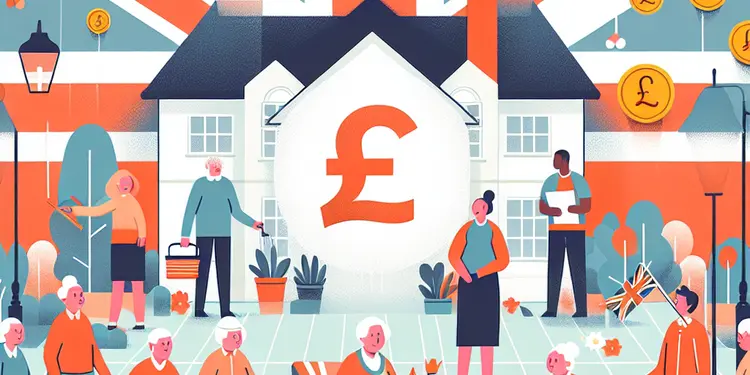
Who can live in a care home?
Relevance: 21%
-

What is the Sure Start Grant in the UK?
Relevance: 21%
-
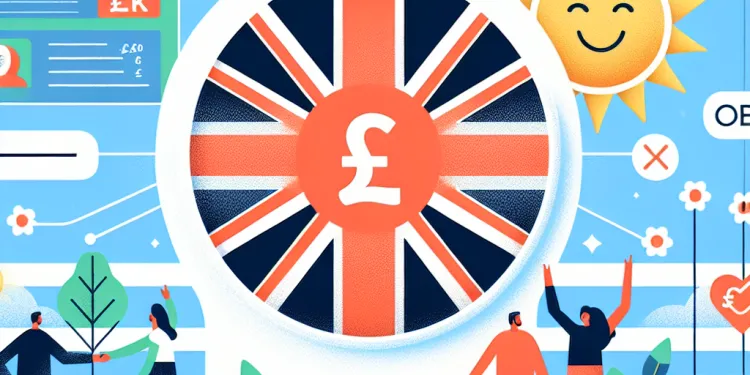
What is Personal Independence Payment (PIP)?
Relevance: 21%
-

What is Personal Independence Payment (PIP)?
Relevance: 21%
-
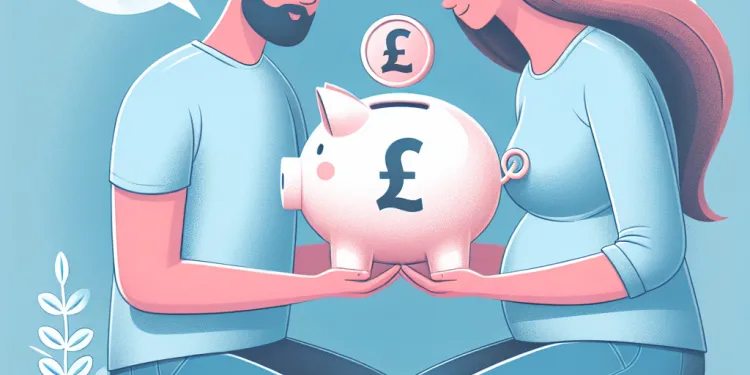
How much is the Sure Start Maternity Grant?
Relevance: 21%
-
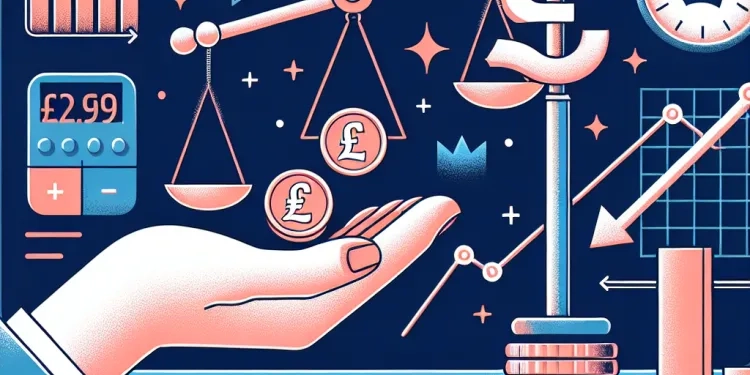
Proposed Welfare Cuts and Their Impact on Vulnerable Populations
Relevance: 20%
Helping Someone with Multiple Disabilities
Understanding Multiple Disabilities
Helping someone with multiple disabilities requires a comprehensive approach, as they may face various challenges simultaneously. Disabilities can be physical, intellectual, sensory, or a combination, impacting different areas of life. In the UK, understanding the specific disabilities an individual has and their unique needs is the first step towards effective support. This might involve liaising with healthcare professionals and involves understanding any medical terminologies or conditions that affect the individual you’re assisting.
Accessing Appropriate Support Services
In the UK, a range of support services are available for individuals with multiple disabilities. Organisations such as the National Health Service (NHS), local councils, and various charities provide services aimed at improving the quality of life for people with disabilities. Carers can seek guidance from these organisations to access care packages, assistive technologies, and other essential services. It is important to know what's available locally, as councils across the UK provide specific services that can vary by region.
Creating an Inclusive Environment
Promoting inclusivity in the environment of someone with multiple disabilities involves making both physical and attitudinal changes. Physically, this can mean ensuring wheelchair accessibility and installing adaptive technologies at home and in public spaces. Attitudinally, it is important to foster understanding and patience among family, friends, and the community. Education on disability awareness is vital in ensuring that societal barriers are removed and everyone can participate in everyday activities. Support groups and community events can be instrumental in promoting inclusivity.
Fostering Independence
While providing assistance is crucial, fostering independence helps individuals with multiple disabilities lead fulfilling lives. Encourage the use of assistive technologies which can aid with communication, mobility, or daily tasks, thereby enhancing the person's ability to live more independently. Training in life skills such as budgeting, cooking, or personal care can empower them and boost self-confidence. In the UK, organisations offer workshops and courses specifically designed to help those with disabilities gain skills and independence.
Emotional and Social Support
Emotional and social support are essential aspects of care. People living with multiple disabilities often face social isolation or mental health challenges. Regularly engaging in conversations, participating in social activities, and encouraging the pursuit of hobbies can improve mental well-being. Accessing mental health services through the NHS or charities like Mind can also provide needed psychological support. It’s important to build a support network comprising family, friends, and community members who are understanding and supportive.
Conclusion
Providing effective assistance to someone with multiple disabilities in the UK involves collaboration, understanding, and patience. By utilising available resources, creating inclusive environments, fostering independence, and offering emotional support, caregivers can make a significant difference in the lives of those they care for. Ultimately, the goal is to ensure that individuals with multiple disabilities have the opportunity to lead enriched and satisfying lives.
Helping Someone with Multiple Disabilities
Understanding Multiple Disabilities
Helping a person with many disabilities means understanding all their needs. Disabilities can be physical (like trouble walking), intellectual (thinking or learning problems), sensory (problems with seeing or hearing), or a mix of these. In the UK, you need to know exactly what disabilities they have to help them best. You might talk to doctors and learn about their health conditions.
Accessing Appropriate Support Services
In the UK, there are many support services for people with multiple disabilities. The National Health Service (NHS), local councils, and charities can help improve their lives. Carers can ask these groups for help to find care programs, special tools, and other services. It's important to know what help is in your area since it may be different in each region.
Creating an Inclusive Environment
Making the right environment for people with disabilities means changing both spaces and attitudes. Physically, make sure places are easy to access, like having ramps for wheelchairs. Attitudinally, help others to understand and be patient. Teach people about disabilities so society can be more welcoming. Support groups and community events help make everyone feel included.
Fostering Independence
Helping people with disabilities to be independent is very important. Encourage them to use tools that help with talking, moving, or doing daily jobs. Teach them skills like managing money, cooking, and self-care. This helps them feel more confident. In the UK, groups have classes to help them learn these skills and become more independent.
Emotional and Social Support
Emotional and social support are very important. People with many disabilities can feel lonely or sad. Talk with them often, help them join activities, and support their hobbies to make them feel better. They can get mental health support from the NHS or charities like Mind. Building a support network with family, friends, and community is key so they have people they can depend on.
Conclusion
Helping someone with multiple disabilities in the UK takes teamwork, understanding, and kindness. Use resources to create happy environments, encourage independence, and give emotional support. This way, you can make a big difference in their lives and help them live happily and fully.
Frequently Asked Questions
What types of support are available for individuals with multiple disabilities in the UK?
In the UK, individuals with multiple disabilities can access a range of support services including in-home care, special education, occupational therapy, assistive technologies, and community support programs. The National Health Service (NHS) and local authorities provide many of these services.
How can I apply for disability benefits on behalf of someone with multiple disabilities?
You can apply for disability benefits such as Personal Independence Payment (PIP) or Disability Living Allowance (DLA) through the UK government's benefits application process. You may need to provide medical evidence and detailed information about the person's conditions.
Are there special education resources available for children with multiple disabilities?
Yes, the UK offers various special education programs designed to meet the needs of children with multiple disabilities. These may include Special Educational Needs (SEN) schools and tailored Individual Education Plans (IEPs). Contact the local council for recommendations and support.
What is an EHCP and how do I get one?
An Education, Health and Care Plan (EHCP) is a legal document that describes a child or young person's special educational, health, and social needs. You can request an assessment through your local authority to see if an EHCP is necessary.
How do I access respite care for a family member with multiple disabilities?
Access respite care by contacting your local social services or NHS trust. Respite care gives caregivers a temporary relief by arranging short-term care for individuals with disabilities, available through community services or private providers.
Can people with multiple disabilities work in the UK?
Yes, individuals with multiple disabilities can work if they are able to and desire to do so. The UK supports disabled people in employment through services like Access to Work, which provides assessments, advice, and funding for adjustments.
What assistive technologies are available for people with multiple disabilities?
A range of assistive technologies exist, including communication devices, mobility aids, adaptive software, and environmental controls. Occupational therapists can recommend technologies tailored to the individual's needs.
How can I ensure the home environment is safe for someone with multiple disabilities?
To ensure safety, consider a home assessment by an occupational therapist. They can suggest modifications such as grab rails, stair lifts, and alarm systems. Local authorities may offer grants for such home adaptations.
What transportation options are available for people with multiple disabilities?
Public transport in the UK offers accessibility features, and mobility schemes like Dial-a-Ride provide door-to-door services. Persons with disabilities may also be eligible for a Blue Badge for parking and a Disabled Persons Railcard.
Are there support groups for families of individuals with multiple disabilities?
Yes, numerous local and national support groups offer networking, advice, and emotional support for families of individuals with multiple disabilities. Examples include Mencap and Contact.
What should I do if I'm not happy with the support services we're receiving?
If you're dissatisfied with services, you can raise the issue with the service provider directly. If unresolved, escalate to the local authority or the Care Quality Commission (CQC). Look into advocacy services if needed.
How can I find a suitable carer for someone with multiple disabilities?
Find suitable carers through local care agencies, recommendations, or by using government resources like Skills for Care. Check carers' qualifications and backgrounds to ensure they meet your requirements.
How can I manage the stress of caring for someone with multiple disabilities?
Managing stress involves seeking support from friends, family, and support groups, taking regular breaks, and maintaining personal health and wellbeing. Consider counselling or therapy if stress becomes overwhelming.
What legal rights do people with multiple disabilities have in the UK?
People with disabilities have legal rights under the Equality Act 2010, which prohibits discrimination in employment, education, and access to goods and services. They also have rights to reasonable adjustments and accessibility.
Where can I find more information regarding caregiving resources and legal advice?
For more information on caregiving resources, seek advice from Citizens Advice, Carers UK, or local advocacy services. For specific legal advice, consider contacting a solicitor or law centre specialising in disability rights.
Help for People with Many Disabilities in the UK
What help can people with many disabilities get in the UK?
They can get different kinds of help, like:
- Special schools and teachers to help them learn.
- Doctors and nurses for health checks.
- Devices like wheelchairs or hearing aids.
- Help at home to do things like cooking and cleaning.
- Places to meet new friends and have fun.
If you need help, ask a parent, teacher, or doctor. They can guide you to the right support.
In the UK, people who have more than one disability can get different types of help. This help includes care at home, special schools, therapy to help with everyday tasks, special tools, and support groups in the community. The National Health Service (NHS) and local councils offer many of these services.
How can I help someone with many disabilities get disability benefits?
Here is how you can help someone get disability benefits:
- Talk to them about it and make sure they want your help.
- Gather important documents like medical records.
- Contact the office where you apply for disability benefits. They can give you a form to fill out.
- Fill out the form with all the correct information.
- Turn in the form and documents to the right office.
- Ask if you need to do anything else or wait for an answer.
You can use tools like talking to a disability worker or using a computer program that reads text out loud. They can help make this easier.
You can ask for money to help with disabilities. This money is called Personal Independence Payment (PIP) or Disability Living Allowance (DLA). To get this money, you need to apply through the UK government's process. You might have to show doctor's notes or talk about your health needs.
Can children with more than one disability get help at school?
Yes, there are special programs and tools to help them learn.
- Teachers who know how to help kids with different needs.
- Special books and computers to make learning easier.
- Games and activities that make learning fun.
These can help children with learning, talking, and playing with others.
Yes, the UK has special schools and programs for children with different needs. These schools are called Special Educational Needs (SEN) schools. Each child can also have a plan just for them called an Individual Education Plan (IEP). Talk to your local council to find the right help and advice.
What is an EHCP and how can I get one?
An EHCP is a special plan for a child who needs extra help at school.
The plan helps everyone know what support the child needs.
Here is how you get an EHCP:
- Talk to your child's teacher or the school. Tell them about the help your child needs.
- The school might do some checks to see what kind of help is best for your child.
- If more help is needed, the school can ask the council to make an EHCP.
- The council checks everything and decides if your child should have an EHCP.
It's good to keep asking questions if you don't understand something.
You can also talk to someone who helps parents, like a family support worker.
An Education, Health and Care Plan (EHCP) is a document that says what help a child needs with learning, health, and other support. You can ask your local council to check if your child needs an EHCP.
How can I get a break for taking care of a family member with many disabilities?
Here is how you can get help:
- Ask a Doctor: Talk to your family member's doctor for advice.
- Contact Services: Call services that help people with disabilities. They can tell you about respite care.
- Look Online: Search the internet for "respite care near me". You might find helpful programs.
- Join a Support Group: Other families might know where to get respite care. Joining them can help you.
It’s okay to ask for help. You are not alone.
You can get help called respite care. To get it, talk to your local social services or NHS trust. Respite care helps caregivers take a break. It arranges short-term care for people with disabilities. You can find it through community services or private providers.
Can people with more than one disability have jobs in the UK?
Yes, people who have different disabilities can get jobs in the UK.
Here are some helpful things for finding a job:
- Ask someone you trust for help, like a family member or a friend.
- You can go to a place that helps people find jobs, called a job center.
- Some online websites help people find work.
Remember, everyone can work and do amazing things!
Yes, people with more than one disability can work if they want to and if they can. The UK helps disabled people get jobs. Services like Access to Work give advice and money to help make work easier for them.
What tools help people with more than one disability?
People who have more than one disability can use special tools and techniques to help them. These tools can make life easier and help them do things by themselves.
Here are some tools that can help:
- Talk-to-Text: This lets people talk into a device, and it types the words for them.
- Text-to-Speech: This reads out loud the words on a screen.
- Screen Magnifiers: These make everything on a screen bigger.
- Hearing Aids: These make sounds louder for people who can't hear well.
- Communication Boards: These have pictures or words to help people tell others what they need or want.
There are many other tools that can help. It's important to find the right ones for each person.
There are many helpful tools for people with different needs. These tools include devices for talking, aids to help people move, special computer programs, and tools to control things around the house. Occupational therapists, who are special helpers, can suggest which tools are best for each person.
How can I make the home safe for someone with many disabilities?
Here are some tips to help you:
- Keep floors clear. Remove anything that could make someone trip.
- Use bright lights. This helps everyone see better.
- Put handrails in places like stairs and bathrooms.
- Use non-slip mats, especially in the bathroom.
- Lock away things like cleaners and medicines.
- Put labels on things, if needed.
- Make sure smoke alarms work. Check them often.
Tools that might help:
- Smart home devices: These can help check the home.
- Reminder apps: Apps can remind you to do important things.
- Communication boards: Help people share what they need.
If you need more help, talk to someone who knows about home safety for disabilities.
To stay safe, you can ask for help from a person called an occupational therapist. They can come to your home to see what changes might make it safer. They might suggest adding things like grab bars to hold onto, lifts for the stairs, or alarm systems. Sometimes, your local council can help pay for these changes to your home.
How can people with different disabilities get around?
There are ways to make traveling easier for people with different disabilities. Here are some ideas:
- Buses and Trains: Many buses and trains have ramps or lifts to help people get on and off. Some also have special seats and space for wheelchairs.
- Taxis and Rideshares: You can book taxis or rideshares that have space for wheelchairs. Some apps let you ask for a car that fits your needs.
- Special Transport Services: There are special cars and vans that can pick you up and take you where you need to go. They are designed for people with disabilities.
- Ask for Help: Friends, family, or helpers can also give you a ride if you need it.
You can also use helpful tools:
- Maps and Apps: Use maps or apps on your phone to plan your trip. They can show you which buses and trains to take.
- Ask Before You Go: Call ahead to check if places have ramps or special features for people with disabilities.
Remember, there are lots of ways to get around. Don’t be afraid to ask for help!
People in the UK can use public transport. Many buses and trains help people who need extra support. There is a special service called Dial-a-Ride that picks you up from your home and takes you where you need to go.
If you have a disability, you might get a Blue Badge. This helps you park closer to where you want to go. You could also get a special train card called a Disabled Persons Railcard. This helps you pay less for train tickets.
Can I join a support group for families with members who have more than one disability?
Yes, you can find support groups. These groups can help families who have someone with more than one disability.
You can:
- Talk to other families who understand what you are going through.
- Share your feelings and ideas.
- Learn new ways to help your family member.
Ask your doctor or local community center for help finding a group near you. You can also search online for groups or websites that offer support and advice.
Yes, there are many local and national groups that help families with people who have multiple disabilities. These groups can help you meet others, give advice, and offer support. Some examples are Mencap and Contact.
What can I do if I'm not happy with the help we are getting?
If you don't like the help you are getting, you can:
- Talk to someone who is in charge. This could be a teacher, manager, or another person who can help.
- Write down what is wrong. This helps to explain your problem clearly.
- Ask for a meeting. You can talk about what is not working and what you need.
- Bring a friend or family member to help you.
- Use tools like pictures or drawings to explain your thoughts.
Remember, it is okay to ask for better help!
If you are not happy with a service, talk to the people who run it. If they can't help, you can ask the local council or the Care Quality Commission (CQC) for help. You can also ask someone to speak for you, called an advocate.
How can I find a good carer for someone with many disabilities?
Finding a carer can be hard, but here are some easy steps to help:
- Ask people you trust. Talk to friends, family, or doctors for advice.
- Look online. Use websites that help you find carers, like Care.com.
- Make a list of what you need. Write down important things like special skills or hours needed.
- Interview the carers. Ask questions to see if they are the right fit.
Here are some tips to help:
- Use clear words to explain your needs. This helps carers understand what you want.
- Ask the carer to meet the person they will help before deciding.
- Make sure the carer can communicate well. This can be with speaking or sign language.
Remember, take your time and find the best carer for you!
You can find good carers in a few ways. Look at local care agencies, ask people you trust for advice, or use government help like Skills for Care. Make sure the carers have the right skills and a good background for what you need.
How can I handle feeling stressed when taking care of a person with many disabilities?
Taking care of someone can be hard. Here are some tips to help you feel better:
- Ask for help. Talk to friends or family. They can support you.
- Take breaks. Spend some time doing something you enjoy.
- Exercise. Moving your body can help you feel calm.
- Talk to someone. Sharing your feelings can make them less heavy.
- Join a support group. Other people understand how you feel.
Remember, it is okay to ask for help. Use techniques like writing down your feelings or using apps to relax.
To help with stress, you can talk to friends, family, or join a support group. Take breaks often and look after your health. If stress feels too much, you might want to talk to a counsellor or therapist.
What rights do people with many disabilities have in the UK?
If you have more than one disability, you still have rights in the UK. This means there are rules to help you.
The law says nobody should treat you unfairly because of your disabilities. You have the right to get help if you need it.
There are tools to help you, like:
- Special devices to make things easier.
- People who can help you understand things.
If you feel you are not being treated well, there are places you can go for help. They can support you and tell you what to do.
People with disabilities have special rights. These rights are under a law called the Equality Act 2010. This law says that it is not okay to treat people with disabilities unfairly at work, in school, or when using services like shops or buses. People with disabilities can ask for changes to be made to help them, so things are easier for them to use.
Where can I get help and information on caregiving and legal advice?
You can find lots of help in books, on websites, or by talking to experts. Here are some ways to get more information:
- Visit your local library. Ask a librarian to help you find books about caregiving and legal advice.
- Look online for caregiving websites. They often have tips and guidance.
- Contact a local support group. They help people like you and share useful information.
- Talk to a lawyer if you need legal advice. They can explain things clearly.
You can also ask friends and family if they know anything about caregiving or legal advice.
Using tools like audio books or videos can help you understand better.
If you want to know more about help for caregivers, you can ask Citizen's Advice, Carers UK, or local groups that help people. If you need help with legal stuff, you can talk to a lawyer or law centre that knows about disability rights.
Try using a phone or computer app that reads text out loud if you find reading difficult. You can also ask a friend or family member to help you read the information.
Useful Links
This website offers general information and is not a substitute for professional advice.
Always seek guidance from qualified professionals.
If you have any medical concerns or need urgent help, contact a healthcare professional or emergency services immediately.
Some of this content was generated with AI assistance. We’ve done our best to keep it accurate, helpful, and human-friendly.
- Ergsy carfully checks the information in the videos we provide here.
- Videos shown by Youtube after a video has completed, have NOT been reviewed by ERGSY.
- To view, click the arrow in centre of video.
- Most of the videos you find here will have subtitles and/or closed captions available.
- You may need to turn these on, and choose your preferred language.
- Go to the video you'd like to watch.
- If closed captions (CC) are available, settings will be visible on the bottom right of the video player.
- To turn on Captions, click settings .
- To turn off Captions, click settings again.
More Items From Ergsy search
-

Profound intellectual and multiple disabilities | NHS
Relevance: 100%
-

Helping someone with multiple diabilities
Relevance: 85%
-

What is a learning disability?
Relevance: 68%
-

Are there grants specifically for individuals with disabilities?
Relevance: 65%
-

Flu vaccinations for people with a learning disability
Relevance: 60%
-

Debate Intensifies Over Welfare Reforms Impacting Disabled Citizens
Relevance: 59%
-

Can children with disabilities access school meals?
Relevance: 59%
-

The NHS Long Term Plan for learning disability and autism
Relevance: 56%
-

Are there any discounts for multiple property purchases?
Relevance: 55%
-

Accessing cervical screening with the right support for people with a learning disability
Relevance: 53%
-

Why do some vaccines require multiple doses?
Relevance: 52%
-

Are there benefits to having multiple bank accounts at different banks?
Relevance: 50%
-

Use of reasonable adjustments to reduce health inequalities for people with a learning disability
Relevance: 50%
-

Are there benefits to having multiple bank accounts at different banks?
Relevance: 50%
-

Transforming Care for people with Learning Disabilities and/ or Autism: Peter's Story
Relevance: 49%
-

Can I have multiple ISAs?
Relevance: 47%
-

Highest Income Multiple Mortgage Lenders Revealed - Good and Bad Points
Relevance: 47%
-

Harshi’s learning disability annual health check and health action plan
Relevance: 43%
-

NHS-led Provider Collaboratives: improving mental health, learning disability and autism services
Relevance: 42%
-

Can multiple users access the same Ring Doorbell Camera?
Relevance: 38%
-

What if I have a disability that affects my ability to serve?
Relevance: 31%
-

How can I disable my neighbour's security camera?
Relevance: 31%
-
Can mitochondrial disease affect multiple organ systems?
Relevance: 30%
-

What support is available for families of individuals with PIMD?
Relevance: 29%
-

What if I need bereavement leave for multiple relatives at different times?
Relevance: 29%
-

What are some common types of SEND?
Relevance: 25%
-

Who is eligible for the Sure Start Grant?
Relevance: 25%
-

Who is eligible for Household & Cost-of-Living Support grants?
Relevance: 24%
-

Who is eligible for the Sure Start Grant?
Relevance: 22%
-

What is the Sure Start Maternity Grant?
Relevance: 22%
-

Are there any financial assistance programs for mobility equipment?
Relevance: 21%
-

Who is eligible for the Sure Start Maternity Grant?
Relevance: 21%
-

What is the Sure Start Maternity Grant?
Relevance: 21%
-

Is there any assistance for those who cannot work up to the new state pension age?
Relevance: 21%
-

Who can live in a care home?
Relevance: 21%
-

What is the Sure Start Grant in the UK?
Relevance: 21%
-

What is Personal Independence Payment (PIP)?
Relevance: 21%
-

What is Personal Independence Payment (PIP)?
Relevance: 21%
-

How much is the Sure Start Maternity Grant?
Relevance: 21%
-

Proposed Welfare Cuts and Their Impact on Vulnerable Populations
Relevance: 20%


